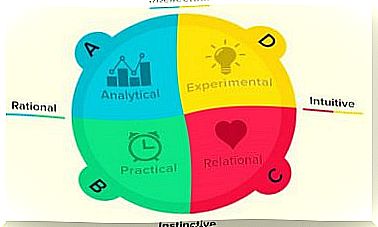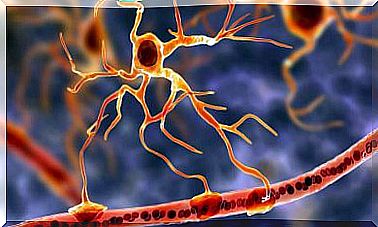5 Benefits Of Maintaining A Positive Attitude Towards Illness

Maintaining a positive attitude towards an illness can remarkably improve the prognosis, alleviate the symptoms of the illness and even serve as a learning experience for life. When an illness is serious, we may feel that our world has fallen. The first reaction is usually: ” Why me?”
We may not have experience with this feeling, and when it appears it can be very difficult to deal with. We may feel too vulnerable and weak in the face of the news, asking ourselves questions we used to ignore and looking for hope in the most unusual places. These emotional states can deplete our energy reserves, lower our self-esteem, or impair sleep.
Keeping a positive attitude is beneficial in any aspect of life. In the case of having to face a serious illness, then, it becomes essential.
Diagnosis of the disease and the emotional process
The truth is that behind every illness there is suffering, a suffering that demands knowing how to deal well with emotions. These are moments when choosing an adequate coping strategy can make the difference between cure, chronicity or the complication of the disease itself. In addition to significantly influencing the quality of life.
Overall, maintaining a positive attitude towards illness offers numerous physical, cognitive, emotional, and social benefits. Thus, a relaxed environment favors the prognosis.
Those patients who do not accept the diagnosis tend to suffer much more. Simply because, in life, it is essential to find emotional harmony.

5 Benefits of Maintaining a Positive Attitude to an Illness
Next, let’s look at some of the benefits of maintaining a positive attitude toward illness. Maintaining an optimistic attitude is easy when the dynamics around us are too; however, matters get complicated when luck turns our enemy and nothing seems to go our way.
makes us stronger
The amount of problems, both for those who think positively and negatively, is usually very similar. However, what facilitates positive thinking is the solution of these problems, concentrating the process of finding solutions on the person. This is an orientation that makes us stronger and more resistant in the face of difficulties.
Goal: maintain a positive attitude
It is recommended to integrate tasks that help us to remain optimistic in our routine. Writing a diary, creating a blog, filling our living space listening to music or contacting people who have been through similar situations makes the palette of emotions not restricted to negative values.
accept the situation
The acceptance of the illness provides a starting point. Only from there can we start working to improve. If not, what’s the point of exercising or taking medication if we don’t understand that there is a problem we should intervene with?
On the other hand, acceptance has nothing to do with catastrophism practiced by some.
It is about accepting what exists, not anticipating negative events that do not necessarily have a reason to happen.

Helps to solve a vital process
Although it seems contradictory, the presence of an illness is a great opportunity to separate the important from the not. Absorbed and deceived by a fast pace, often superficial, the disease can serve as a sieve for the reality experienced by the person.
Change the values of life
Values sustain and sustain principles and priorities that help us make decisions. In this sense, traumatic events, personal crises or illnesses can lead us to rethink our existential factor.
In a survey conducted by the University of Almeria, Spain, in 2016, the objective was to identify the possible change in personal values when faced with the diagnosis of a serious illness. The survey concluded that 87% of patients showed a change in the priority of their values, giving greater importance to personal relationships, family, fun and well-being. They also showed higher levels of assertiveness, empathy and dedication.








